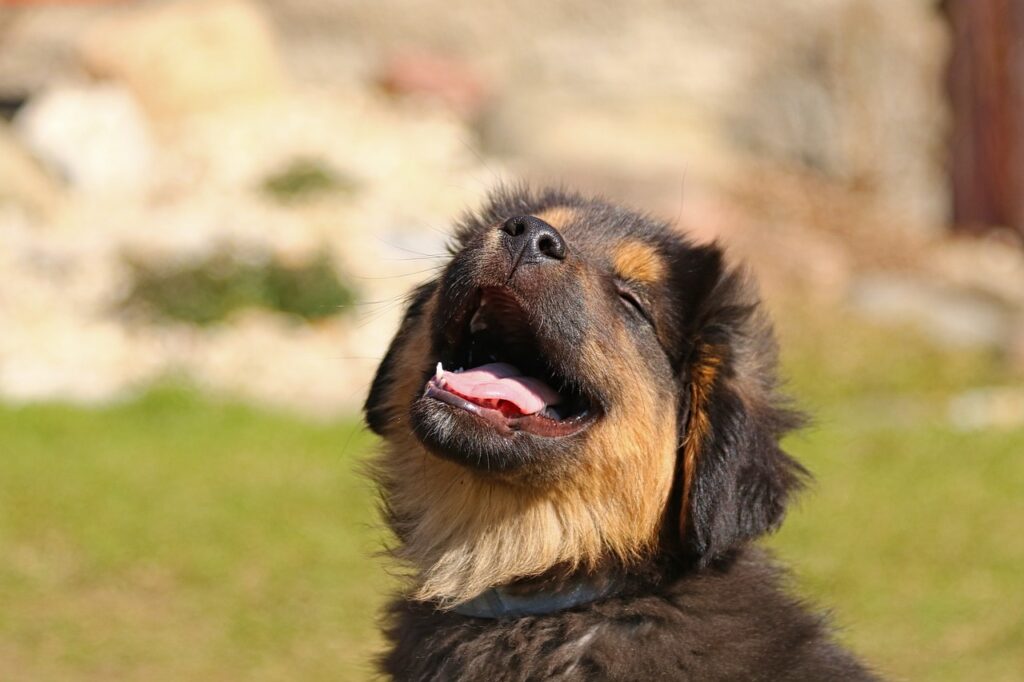Maltese Dog Puppies
They are charming, elegant in look and build, and small in size-a very common reason for any dog lover to have them in their home. If you plan to get one such cute, little puppy of the Maltese breed, here is a complete guide that will help you know everything about how to keep your new four-legged partner healthy and happy.
Introduction to the Maltese Breed
The Maltese are one of the world’s oldest breeds, originating in the Mediterranean island of Malta more than 2,000 years ago. Royalty and aristocrats beloved them for their beauty and gentle affection. Such a nature makes the dogs much loved companions even today, which exhibit both playfulness and gentleness.
Temperament: Affectionate and Playful
Maltese puppies are very affectionate and playful. They attach strongly to their owners and love human companionship. Their playful antics and lively personality make them a joy to be around. Despite their small size, Maltese dogs have big personalities and are known to be quite fearless. They are also intelligent and eager to please, which makes them relatively easy to train.
Appearance: Graceful and elegant

With their long, flowing coats of white and dark, expressive eyes, Maltese dogs are unmistakable. Their elegant appearance is matched by their compact, diminutive body and graceful movements. The full-grown Maltese usually weighs about 4 to 7 pounds and is about 8 to 10 inches tall at the shoulder. While their coat does require a lot of regular grooming, many owners find the effort well worth it for such beautiful results.
Care Requirements: Making Him Happy and Healthy
Taking proper care of your Maltese puppy is very important in ensuring he lives long and healthy. Essential aspects of a Maltese care include:
Diet and Nutrition: A balanced diet is crucial for the health of your Maltese puppy. Choose high-quality dog food that is specifically formulated for small breeds. Puppies have different nutritional needs than adult dogs, so opt for a puppy-specific formula. It’s important to feed your Maltese puppy small, frequent meals to prevent hypoglycemia, a condition common in small breeds.

Grooming: With the long, white coat, the Maltese requires regular grooming to remain clean, matt-free, and without tangles. Day-to-day brushing is required to avoid mats and tangles. Regular baths, ear cleaning, and nail trimming are also essential parts of their grooming routine. Many Maltese owners choose to keep their dog’s coat trimmed short for easier maintenance.
Exercise: Though Maltese are small dogs, puppies do require a regular amount of exercise to maintain healthy and happy lives. Day walks, playtime, and interactive toys will satisfy all exercise requirements. They also enjoy games indoors, thus can be good companions on apartments.
Training: The puppies of Maltese are smart and willing to please, which makes them comparatively easy to train. They do well with positive reinforcement such as treats and praise. The importance of early socialization and basic obedience training will help your Maltese puppy grow into a well-behaved adult dog.
Health Care: Your Maltese puppy requires regular veterinary check-ups to monitor his health. Dental problems, luxating patella, and eye conditions are common health issues in Maltese dogs. Vaccination, dental care, and parasite prevention are very important for the health of your puppy.
How to Train a Maltese Puppy: Tips and Techniques
Training is an indispensable part of raising a well-behaved and happy adult Maltese. Below are some tips and techniques to guide you through the training process.

Start Early: As soon as you bring your Maltese puppy home, they should start training. Early training installs good habits and discourages the building of bad ones.
Use Positive Reinforcement: Maltese puppies respond well to positive reinforcement techniques. Reward your puppy with treats, praise, and affection when they exhibit desired behaviors. This encourages them to repeat those behaviors.
Be Consistent: Consistency is key when training your Maltese puppy. Set clear rules and boundaries, and stick to them. Consistent training helps your puppy understand what is expected of them.
Socialize Your Puppy: Socialization is important for all dogs, but especially for small breeds like the Maltese. Expose your puppy to different people, environments, and other dogs to help them become well-adjusted and confident.
Housebreaking: Houssebreaking may be a bit difficult with small breeds, but with a lot of patience and consistency, your Maltese puppy will eventually learn to potty outside. Take your puppy outside as often as possible, such as after eating and sleeping, and reward him if he does his business in the right area.
Health Considerations: Keeping Your Maltese Puppy Healthy
Generally, Maltese are healthy dogs, but just like all breeds, they are inclined to specific health issues. Knowing these potential health problems will prepare you for taking precautions and visiting the veterinarian as soon as you notice something wrong. Here are some common health considerations for Maltese puppies:

Dental Issues: Maltese dogs are prone to dental issues, such as tooth decay and gum diseases. The regular dental cares like brushing your puppy’s teeth and giving dental chews will maintain their oral health.
Luxating Patella: This is a condition wherein the kneecap slips out of place. It is common in small breeds, and that includes the Maltese. Your puppy’s knee health can be monitored through regular visits to a veterinarian, and severe cases may require surgery.
Eye Conditions: Cataracts and progressive retinal atrophy are only two of the many eye conditions the Maltese could experience. Regular eye exams through a veterinarian can help find these conditions early on to manage them properly.
Hypoglycemia: Small breeds, such as the Maltese, are prone to hypoglycemia, which is a condition wherein the blood sugar level of your puppy becomes too low. Feeding your puppy small, frequent meals can help prevent this condition.
Liver Shunt: This is a congenital condition that causes problems in the liver’s ability to filter toxins from the blood. Poor growth, vomiting, and lethargy are some of the symptoms. Early diagnosis and treatment are necessary to manage this condition.
Choosing a Maltese Puppy: What to Look For
First, it is vital to pick a good breeder-one that takes good care of his dogs. Here are some guidelines for choosing a healthy and cheerful Maltese puppy:
Research Breeders: Look for breeders who have a good reputation and are known for producing healthy, well-socialized puppies. Ask for references and visit the breeder’s facility if possible.
Meet the Parents: Meeting the puppy’s parents can give you an idea of what your puppy will be like as an adult. Look for parents that are friendly, healthy, and well cared for.
Health Clearances: Reputable breeders have health clearances on their breeding dogs for common genetic health issues. Ask to see these before committing to a puppy.
Observe the Puppies: The time you spend with the puppies will help you observe their behavior and temperament. Choose a puppy that is active, curious, and generally interacts well with people.
Ask Questions: If you have any questions regarding your puppy’s health, diet, and socialization, do not hesitate to ask your breeder. A good breeder will be more than glad to give you all information.

Bringing Your Maltese Puppy Home: Preparing for Arrival
Bringing a new puppy home is an exciting time, but being prepared will ensure a smooth transition for your new furry friend. Here are some tips for preparing for your Maltese puppy’s arrival:
Puppy-Proof Your Home: Take away any potential hazards and create a safe space for your puppy. This includes securing electrical cords, removing toxic plants, and blocking off areas that are off-limits.
Gather Supplies: Stock up on important supplies, including food and water bowls, a comfortable bed, toys, grooming tools, and a crate for training and safe confinement.
Establish a Routine: Set up a daily schedule for feeding, potty breaks, playtime, and training. Consistency helps your puppy feel secure and understand what is expected of him.
Allow the puppy to slowly get accustomed to their new home, in his or her time. Be very affectionate and comforting.
Schedule a Veterinary Visit: Shortly after arrival into the house, the puppy needs to visit the vet to ensure that everything is healthy and all vaccinations have been taken care of. Also, one must discuss a vaccination and preventative care schedule with the veterinarian.
Enjoy Your Life with a Maltese Puppy
Maltese puppies bring joy, companionship, and endless love into the lives of their owners. With proper care, training, and attention, you will be able to see your Maltese puppy develop into a happy and healthy adult dog. Their affectionate nature, playful personality, and elegant appearance make them a great addition to any family. Whether you are a first-time dog owner or a seasoned pet parent, a Maltese puppy is sure to bring happiness and love into your life.
Conclusion
Maltese dogs are a delightful breed known for their affectionate nature, playful personality, and elegant appearance. By understanding their care requirements, training needs, and health considerations, you can ensure your Maltese puppy thrives in your care. Whether you’re considering adding a Maltese puppy to your family or already have one, this guide provides valuable insights to help you provide the best possible care for your furry friend. With their charming personality and loving nature, the Maltese puppies will be your companion for years to come, bringing so much joy into your life.



